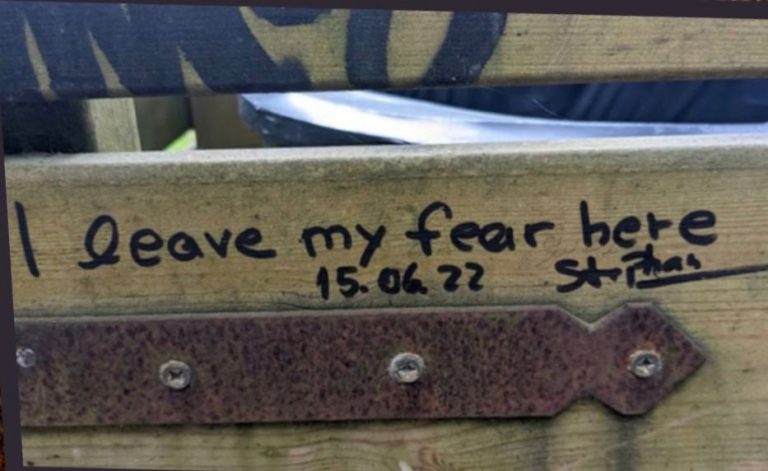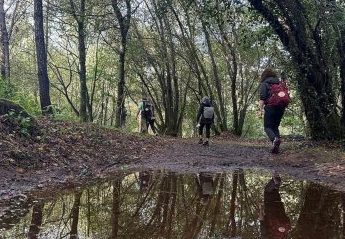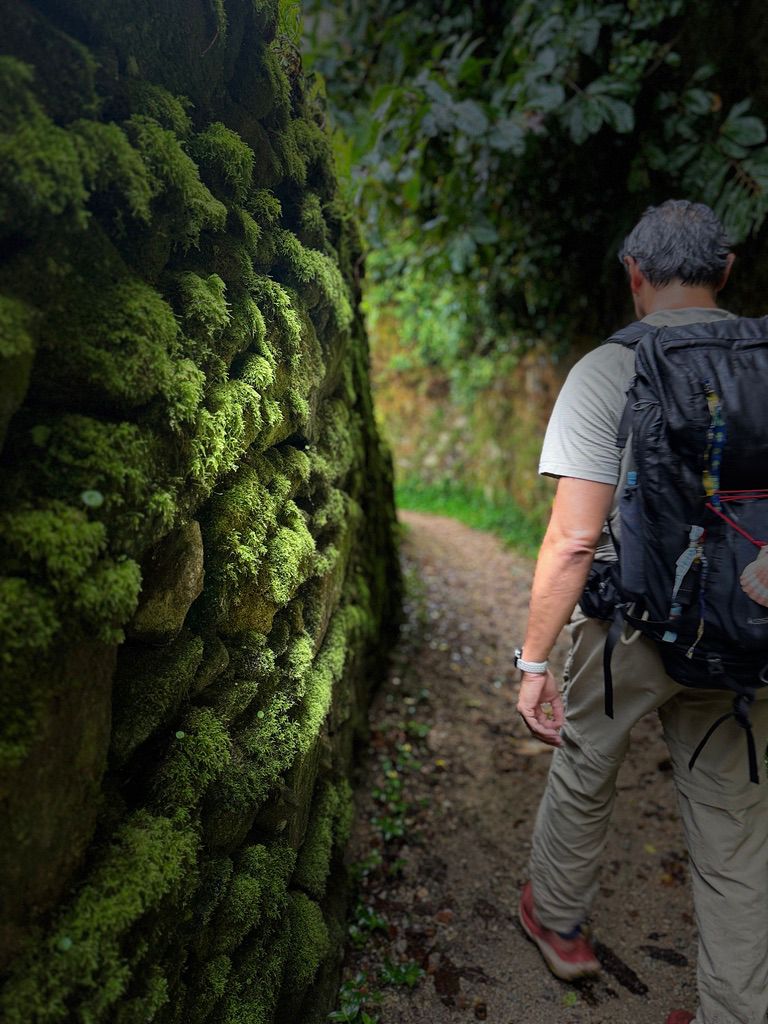
“Solvitur Ambulando” is a Latin phrase that literally translates as “it is solved by walking.” It is attributed to the Greek philosopher, Diogenes, extolling the virtues of motion. The latter, “Sanatus Ambulando” is a derivative translated to “it is healed, it is restored, by walking.“
Following hip replacement, knee replacement surgery, the physiotherapist will almost immediately get you on a rehabilitative regime that involves walking. Even after open heart surgery, within a few days, rehabilitation and healing involves walking. Whilst an ambulance may be a necessary form of conveyance to the hospital, being ambulatory is now the continuing journey of restoration. Solvitur ambulando, sanatus ambulando.
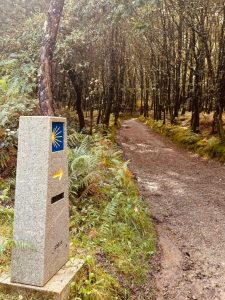
Being a pedestrian or being pedestrian does not lend itself to excitement. Yet, there is a joy to be found and to be mined in being pedestrian, in being a pedestrian – a walker, someone travelling on foot. Being pedestrian means dull or commonplace. Amidst the complexity and craziness of our lives with its packed schedules and/or excruciating loneliness, we distract ourselves with sedentary pursuits – social media, vocation, television, even medication. Sedentary and sedated share the same Latin root – to sit, in other words, not to move. We anesthetize ourselves, sedate ourselves. How do we wean off anaesthesia? Solvitur ambulando, sanatus ambulando.
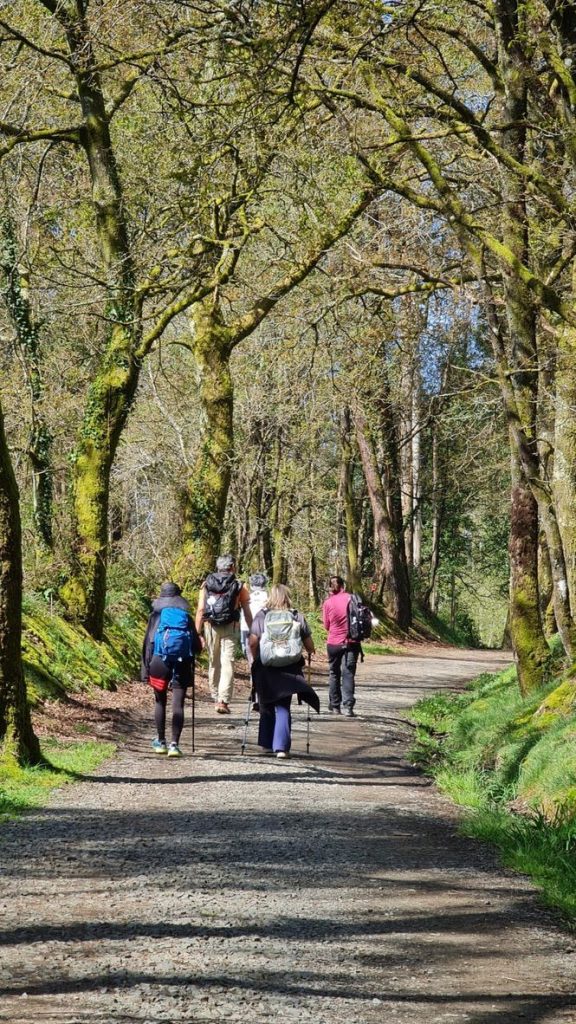
Amid all this, we are given the gift of walking, of being pedestrian, a pedestrian. Being prosaic yet holding the promise of change and newness, new sight, new vision, new perspectives as we walk, while we walk, not as a means to an end but as an end in itself. Walking with less thought to destination than journey. Planting one foot in front of the other 200,000 times (the distance on camino desert odyssey), so we are present to the present, present to people, present to ourselves, and not to some distant dispensation. There will be time for that. For now – solvitur ambulando, sanatus ambulando.
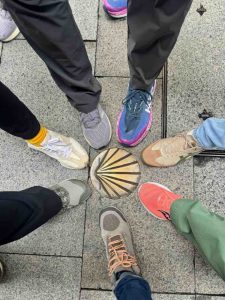
In the waning years of my father’s life, he was in poor health (in some ways as a consequence of a sedentary lifestyle), and not particular ambulatory. At Odyssey, a programme at Prison Fellowship International where I served for 25 years, I invited dad to be Chaplain-in-Residence for the leaders that came from all over the globe. In the course of the programme, dad and I took many evening walks in the cool dusk and rich foliage of the Singapore Botanical Gardens, which was literally across the street from where we held Odyssey. Dad’s walking was laboured and yet the walks were life-giving, trod often in silence and yet in deep conversations of the heart – solvitur ambulando, sanatus ambulando.
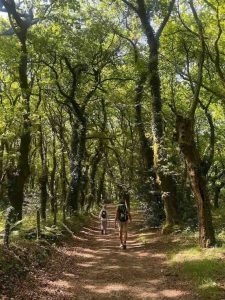
On one of the camino desert odyssey in 2023, I was sharing about my neurodivergence – dyslexia, dyspraxia, auditory processing disorder, attention-deficit hyperactive disorder, and depression thrown into the mix for variety. One of the sojourners, a seasoned and very senior human resource executive blurted out that if not for my moral failure that necessitated my resignation in 2014, I might well have been fired for my incompetence as CEO. In that role, the complexities of diverse responsibilities and decision making require cognitive capacities that are a struggle with someone with neurodivergence.
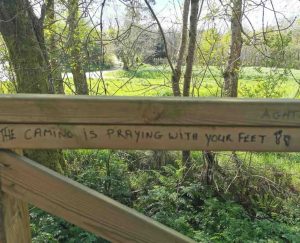
The stunned silence filled the room and then I unexpectedly burst out in peals of laughter, the kind that causes you to tear. It was a relief and the answer to the question I had been seeking for 8 years following my decision not to return to PFI or the Diocese of Singapore. Was it obstinance or obedience, hubris or humility? I knew now it was the latter as I navigated a new season of life that as I age, my ability to compensate for my neurodivergence is waning.

So, I walk – for myself and with others at desert odyssey, literally on the Camino Santiago and metaphorically in other locations. A journey to discover the better version of ourselves, the version that enables us to more fully steward our gifts and passions, not in spite of but with all the foibles and frailties of our minds and bodies. There is something broken in each of us. Maybe it’s physical. Maybe it’s emotional. Maybe it’s relational. Maybe it’s mental. Maybe it’s vocational. Maybe it’s existential. On the walk, dare to name what it is. Then walk – solvitur ambulando, sanatus ambulando. Walk from a fractured past, into a re-membered present, in order to pursue a desired future!










